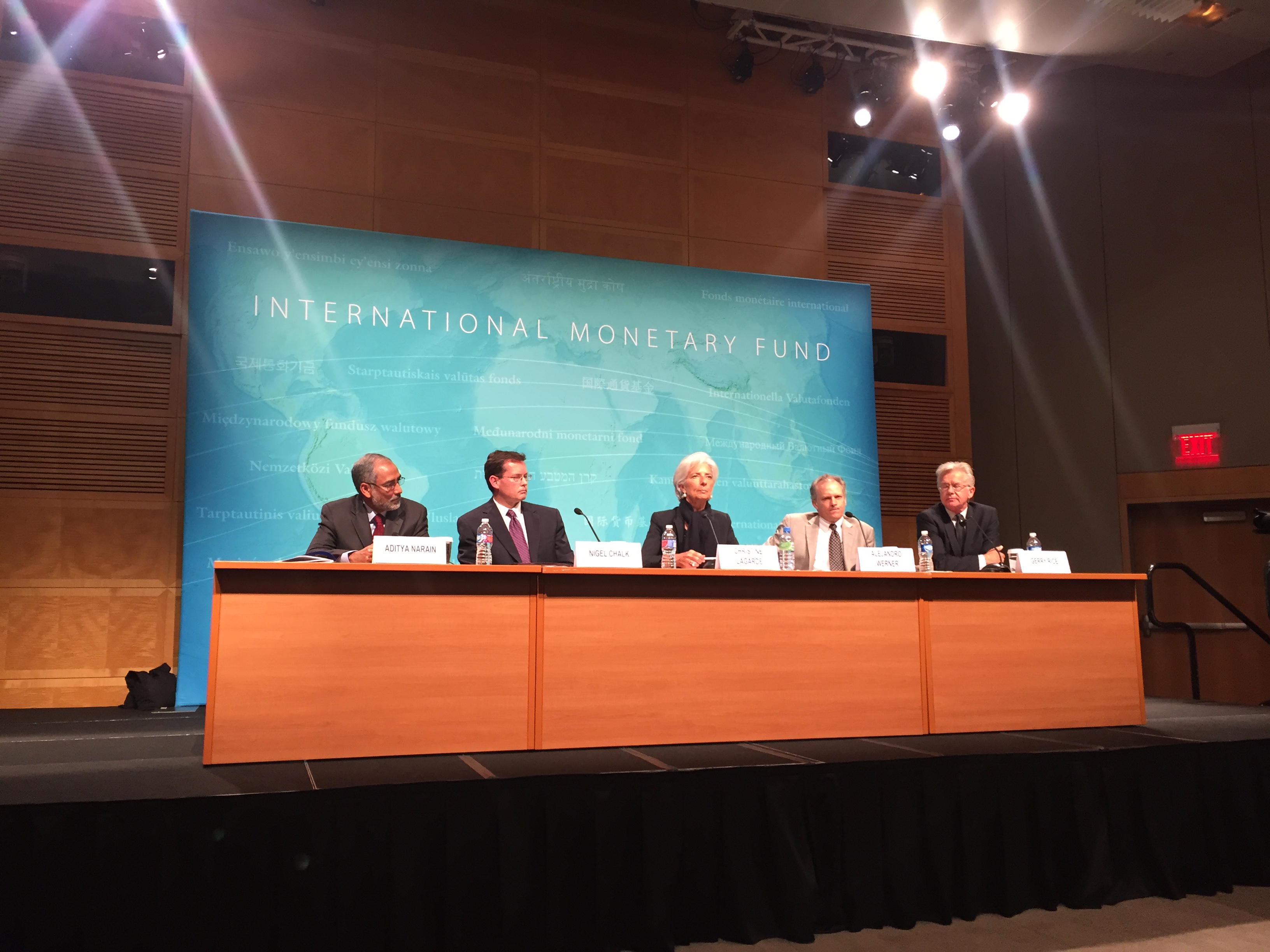The International Monetary Fund suggested on Wednesday that the Federal Reserve should raise interest rates early next year and shrink the 2015 U.S. GDP growth forecast from 3.1 percent to 2.5 percent.
IMF Managing Director Christine Lagarde said she and Federal Reserve Chairwoman Janet Yellen “essentially agree the interest rate hike must be data-dependent.”
“The inflation rate is not progressing at a rate that would warrant, without risk, a rate hike in the next few months, which is why — to make the point — we are saying that the economy will be better off with a rate hike in early 2016,” Lagarde said at IMF headquarters in Washington.
However, in May, Yellen said interest rates could go up before the end of this calendar year. “If the economy continues to improve as I expect,” she said during a speech in Rhode Island. “I think it will be appropriate at some point this year to take the initial step to raise the federal funds rate target and begin the process of normalizing monetary policy.”
The IMF, in its concluding statement of 2015 Article IV Consultation with the U.S., an annual economic review with the world’s largest economy said, “Deferring rate increases would provide valuable insurance against the risk of disinflation, policy reversal, and ending back at zero policy rates.”
The IMF expected that core personal consumption expenditures inflation to fall in the coming months. The PCE is the Fed’s primary inflation measurement other than the consumer price index. “Inflation should start rising later in the year but reach the Federal Reserve’s 2 percent medium-term objective only by mid-2017,” the IMF said.
Nevertheless, the IMF took a generally positive view of the U.S. economy, even though real U.S. GDP in the first quarter of 2015 shrank 0.7 percent.
The IMF attributes the contraction to a series of negative factors, including a sharp pulling back in oil sector investment, the port strike on the West Coast, and the effects of the strengthening dollar. However, the IMF sees those factors as only “a temporary drag but not a long-lasting brake on growth.” Tweak growth in the first quarter of this year dropped the IMF’s annual GDP projection to 2.5 percent.
The IMF said rapid movement of the dollar, which has risen 13 percent over the past year, has caused the greenback to be “moderately overvalued.”
“The strong dollar is impacting U.S. growth and job creation, as well as weighing on inflation,” said the IMF. “There is a risk that a further marked appreciation of the dollar would be harmful.”
The Federal Open Market Committee will hold meetings on June 16 and June 17 to talk about interest rates. “I suspect it’s also going to show slower growth in 2015,” said Christopher Low, chief economist of the First Horizon National Corp’s FTN Financial in New York.
“But to the Fed, what matters most is the strength of employment growth rate,” said Low. “As long as we continue to see decent job growth, I think they’ll go ahead to raise rates this year.”
Low, a member of the Economic Advisory Committee of the American Bankers Association, said the Fed and the IMF have different emphases in economic forecasts: While the Fed focuses on inflation and the unemployment rate, the IMF focuses on the impact of the exchange rate.
He said he suspects the IMF fears that if the Fed tightens monetary policy this year, “it’s going to cause the dollar strengthen too much, which will destabilize not only the U.S. economy but the global economy.”


